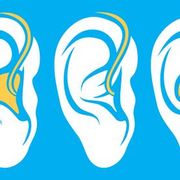3 Reasons You Shouldn’t Ignore Vision & Hearing Loss

When it comes to your senses, hearing and vision serve distinct purposes. While these senses may not seem similar, they work closely together to support many aspects of your health. For this reason, it’s important to regularly test your hearing and vision. To better understand why these capabilities should be routinely evaluated, here are a few ways that vision and hearing loss may contribute to specific health risks.
3 Benefits of Addressing Both Hearing & Vision Problems
1. Preserve Your Senses
Although hearing and sight perform different functions, they are both needed to improve your awareness of the environment. For example, if you experience hearing loss, you will need to rely on your vision to better perceive the world around you. Conversely, people with vision problems often rely on their sense of sound to interact with the surrounding environment.
Evidence also suggests that auditory and visual sections of the brain work together to help you decipher events. For instance, if your hearing is compromised, you may have trouble recognizing the sounds of an approaching object and in turn, have problems perceiving it visually. In simple terms, this connection suggests that poor hearing or vision can sometimes compromise the ability of the other sense.
2. Reduce Fall Risk
 Every year, one out of four older adults is estimated to encounter a fall. One potential reason for this increased risk is that seniors tend to have more problems with vision and hearing loss than other age groups. If these problems go unaddressed, older individuals may compromise their ability to move around their environment.
Every year, one out of four older adults is estimated to encounter a fall. One potential reason for this increased risk is that seniors tend to have more problems with vision and hearing loss than other age groups. If these problems go unaddressed, older individuals may compromise their ability to move around their environment.
For example, if a senior cannot see properly, they may not recognize trip hazards that can cause them to fall. Hearing loss, on the other hand, can disrupt a person’s balance, making them more likely to lose stability.
3. Protect the Mind
When senses of sight and sound are not working properly, the parts of the brain that correspond to visual and auditory input become less active. These issues may also cause a person to become isolated, decreasing the brain-stimulating interactions they have with other people.
Over time, this loss of brain activity can have a detrimental effect on a person’s cognitive abilities. Studies support this connection by showing that people with vision and hearing loss have a higher risk of experiencing cognitive decline—a process that can contribute to dementia and memory loss.
While hearing loss cannot always be prevented, there are many ways you can preserve your sense of sound and protect your overall health. If you’re concerned about your listening abilities, Northwest Alabama Hearing Clinic offers comprehensive hearing tests to measure your level of sound perception. If problems are present, this audiology specialist in Hamilton, AL, can introduce you to a wide variety of comfortable hearing aids to improve your daily life. Visit this clinic online to learn more about these services, or call (205) 952-9944 to schedule a convenient appointment.
About the Business
Have a question? Ask the experts!
Send your question

